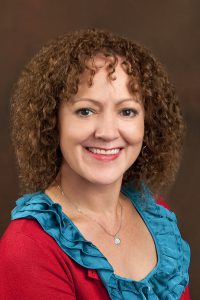This guest post is by the brilliant think tank author Benita Dodd, Vice-President of the Georgia Public Policy Foundation (GPPF). The foundation’s mission is to improve the lives of Georgians through public policies that enhance economic opportunity and freedom.
‘Guide to the Issues’ Offers Georgia-focused Solutions
By: Benita Dodd
The media hype surrounding the political parties’ national conventions spotlights the enormous discord created by personalities and politics as the presidential election approaches. Getting short shrift amid slogans and the scramble for dollars and votes are the policy proposals that will affect the lives of Americans — and Georgians — long after November 8.

Many citizens dismiss the states’ impact on issues at the national level — federal taxes, immigration, the military and education policy, for example. Too many believe the answers depend on who is elected president and to Congress.
It’s not always so. It behooves Georgians to pay close attention to innovative ideas closer to home. States are often incubators, testing life-enhancing policies that can be embraced at the federal level, too.
- Wisconsin’s Republican governor, Tommy Thompson, is called the father of welfare reform for implementing welfare-to-work policies in his state in the 1990s that became a national model.
- Texas is the innovator that began the “Right on Crime” criminal justice reforms in which Georgia is now an acknowledged leader at both adult and juvenile levels.
- State by state, the Institute for Justice takes on occupational licensing barriers, including for Georgia’s African hair-braiders; today even the federal government proposes reducing licensing burdens.
- Common Core State Standards were offered by governors — including Georgia Gov. Sonny Perdue — as a state alternative to the federal No Child Left Behind law. Sadly, it became a pariah after being co-opted by the federal government.
As Georgia’s only free-market, state-focused public policy research organization (“think tank”) the nonpartisan Georgia Public Policy Foundation understands the need for a thoughtful approach that reinforces policy over politics in this acrimonious political climate. Limited government needs a passionate advocate or mission creep wins.
Hence the Guide to the Issues 2016. Currently online and awaiting publication of the hard copy version, the 13 issue chapters share solutions Georgia can implement at the state level and perhaps serve as a national example. Each includes the Foundation’s principles for reform, facts on the issue, background information and, in most cases, specific items that provide positive solutions to Georgia’s policy challenges.
With a foundation of facts and the principles of limited government, individual responsibility and free enterprise, the Guide to the Issues promotes opportunity for all Georgians, from education to work and more.
Elected officials considering further Criminal Justice reforms, for example, learn that Georgia’s rate of probation is the highest in the nation: alarmingly, four times the national average and more than double the rate of any other state.
When it comes to Medical Malpractice, few know the authors of this comment: “The current tort system does not promote open communication to improve patient safety. On the contrary, it jeopardizes patient safety by creating an intimidating liability environment.” The authors were then-senators Hillary Clinton and Barack Obama.
The Medicaid chapter warns against expanding the program under ObamaCare, noting: “Adding several hundred thousand more recipients to the program will further strain the system and could negatively impact existing Medicaid recipients: the elderly, the disabled, pregnant women and children.”
The Tax Reform chapter proposes lowering the personal income tax rate, noting that “More than half of all business income nationally is taxed through the individual income tax, not the corporate income tax. …That amounts to more than 800,000 small businesses in Georgia.”
The Transportation chapter urges, “Instead of arguing for costly taxpayer-funded expansion of antiquated modes such as heavy rail, light rail and streetcars that require a lengthy commitment, Georgia policymakers should prepare for the future” of commuter technology, ridesharing and autonomous vehicle services.
Other chapters cover Education, Fiscal Overview, Health Care, Higher Education, Long-Term Care, Medicaid, Pension Reform, Professional Licensing and Welfare Reform.
The chapters are easy to digest and serve as more than a roadmap for candidates and elected officials. Georgians deserve government that is more effective, efficient and accountable to hardworking taxpayers, voters and families. The Foundation’s Guide to the Issues helps voters decide who’ll bear down on Big Government.
We hope you’ll take the time to visit the online version and send us your thoughts at info@georgiapolicy.org.
Benita M. Dodd is vice president of the Georgia Public Policy Foundation, an independent think tank that proposes market-oriented approaches to public policy to improve the lives of Georgians. Nothing written here is to be construed as necessarily reflecting the view of the Georgia Public Policy Foundation or as an attempt to aid or hinder the passage of any bill before the U.S. Congress or the Georgia Legislature.
© Georgia Public Policy Foundation (July 22, 2016). Permission to reprint in whole or in part is hereby granted, provided the author and her affiliations are cited.
You must be logged in to post a comment.